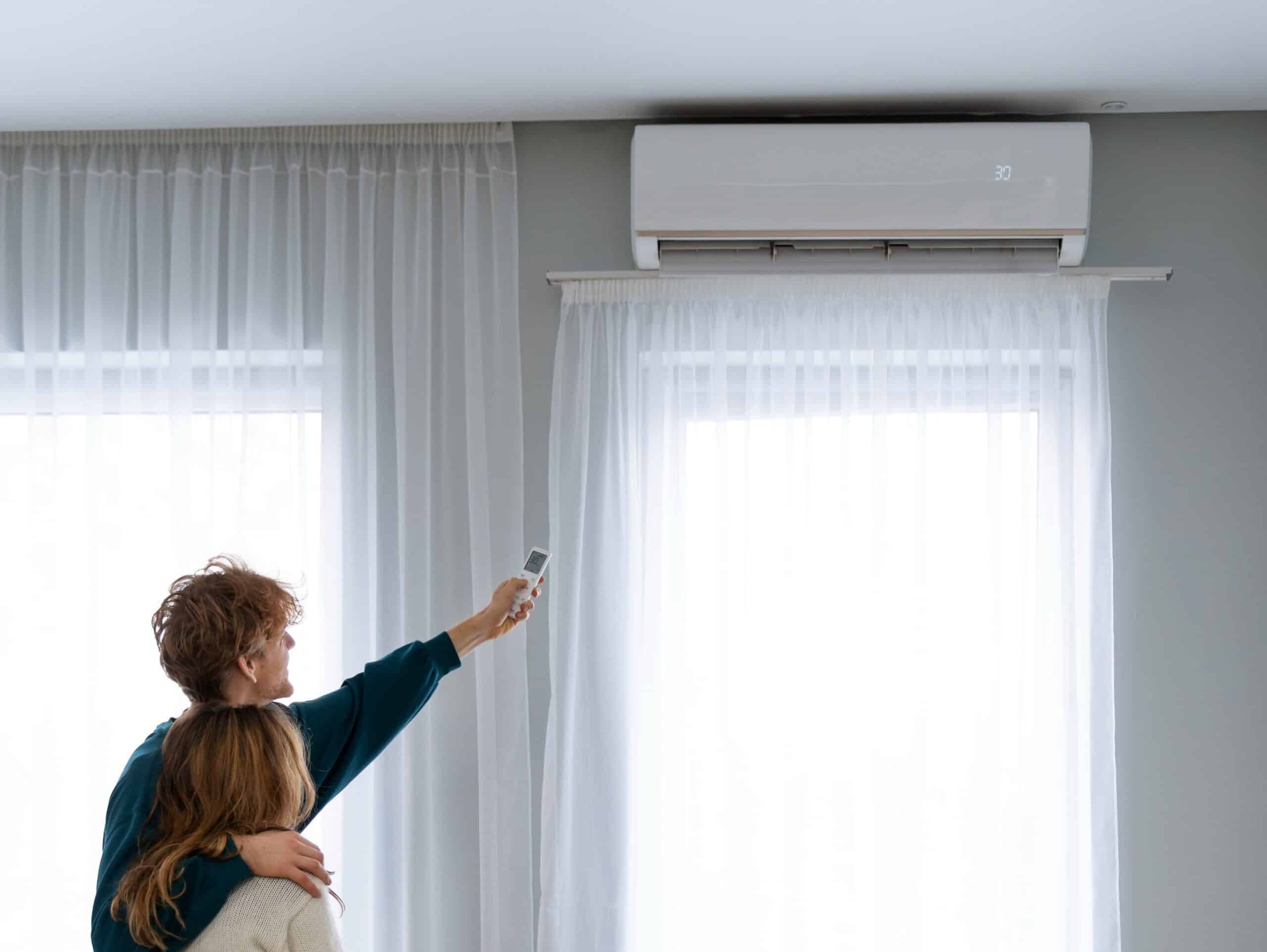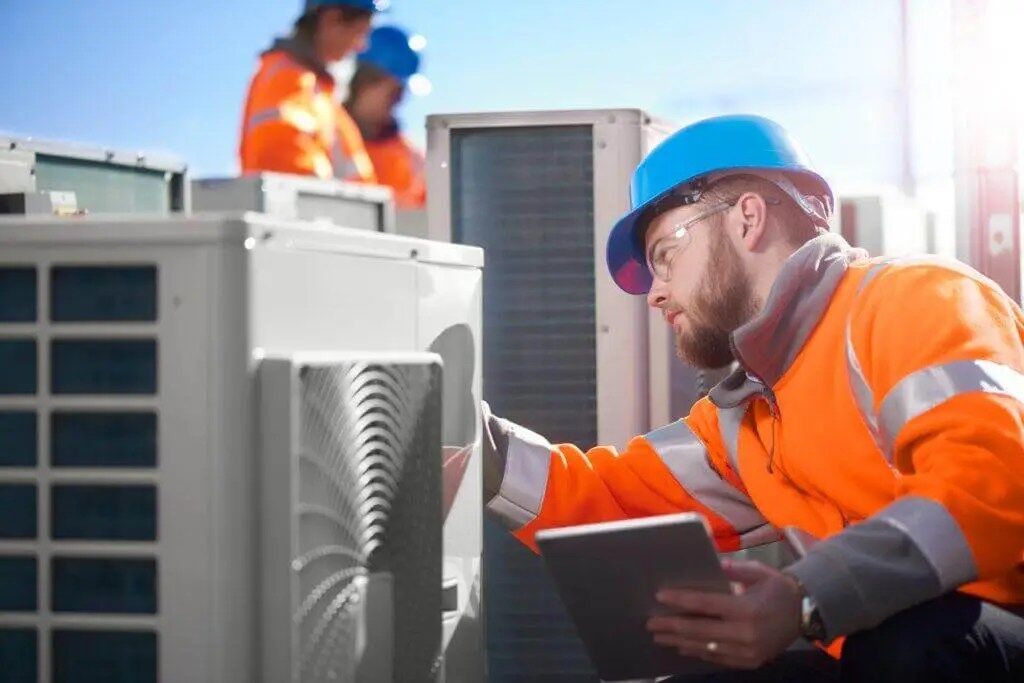Exactly how to Choose the Right Cooling And Heating System for Your Office Or Home Demands
Selecting the ideal cooling and heating system for a home or workplace is no little job. It's a process that calls for mindful analysis of private heating, cooling, and air flow demands, factor to consider of different system types, and evaluation of energy performance. With the balance of preliminary expenses and lasting cost savings in mind, this complex choice needs thorough research study and professional support. A wrong choice can bring about pain, high power bills, and frequent upkeep concerns. For that reason, understanding the fundamentals is important.
Comprehending the Basics of HVAC Equipments
An a/c system, an acronym for Heating, Ventilation, and Cooling, is a critical element in preserving a comfy and healthy and balanced indoor environment. These systems function in unison to control the indoor temperature, moisture degrees, and air high quality, allowing passengers to adjust conditions to their preference. The home heating component provides warmth throughout cool periods, while the cooling cools down the interior during hot durations. Ventilation, on the other hand, makes certain a continual exchange of indoor air with fresh exterior air, removing toxins and preserving excellent air top quality. The complexity of a heating and cooling system can vary, ranging from straightforward single-room units to detailed systems that offer large commercial buildings. Understanding these basics is the initial step in choosing the right HVAC system.
Assessing Your Indoor Climate Requirements
Relocating from a basic understanding of HVAC systems, the next step includes a careful examination of your particular interior climate requirements. A bigger area might require an extra robust system, while a smaller sized area could not need as much power. Areas with severe temperatures may require systems with higher efficiency.
Checking Out Different Sorts Of HVAC Solutions
Navigating via the complexities of a/c systems can be difficult. It is crucial to recognize the range of a/c selections available, and to make an enlightened option based upon cost and performance contrasts. This expedition will certainly offer a more clear point of view on what each kind of cooling and heating system offers.
Comprehending Heating And Cooling Selections
Ever before asked yourself concerning the wide variety of options when it concerns cooling and heating systems? There are essentially four main kinds to consider. Central cooling and heating systems, one of the most typical, make use of ductwork to disperse cool or cozy air throughout your home. Ductless, mini-split systems, on the other hand, give temperature level control for private areas, excellent for homes with 'hot spots'. Heatpump utilize power to relocate warmth from an awesome space to a cozy room, making the amazing room colder and the cozy room warmer. Lastly, packaged home heating and a/c systems include the blower, heating, and cooling down elements all in one device. Each type has its distinct advantages, and recognizing these can assist one make an educated decision.

Cost and Efficiency Comparison
When discovering the substantial selection of heating and cooling systems, it is essential to take into consideration both cost and performance. Originally, less expensive versions may appear appealing. Nevertheless, they are frequently much less efficient, leading to greater energy costs gradually. As a matter of fact, much more pricey systems tend to be a lot more energy-efficient, conserving money in the future.
For example, central air conditioning systems, though costly, are generally a lot more reliable than window systems. In a similar way, heat pumps are expensive yet supply heating and cooling down capabilities, making them an affordable, year-round option.
Furthermore, it's important to take a look at the system's Seasonal Energy Performance Proportion (SEER) A higher SEER rating indicates far better power effectiveness, which equates to lower operating expense (DMAK's HVAC Edwardsville IL Experts). Hence, investing carefully in an appropriate heating and cooling system equates to long-term cost savings.
Energy-Efficiency and Your A/c System
The relevance her response of energy-efficiency in a/c systems can not be overemphasized. The very first step towards an energy-efficient a/c system is comprehending the ratings and picking the best designs. This will certainly not just profit the setting however additionally cause considerable price savings.
Recognizing Energy-Efficiency Scores
Why is energy-efficiency important in your A/c system? Energy-efficiency rankings serve as an essential guide to determine the potential energy intake and savings of a HVAC system. This score, usually shared in SEER (Seasonal Energy Performance Ratio) for air conditioners or AFUE (Yearly Fuel Usage Performance) for heating systems, offers a clear indication of the system's power effectiveness.
Choosing Energy-Efficient Versions
How does one tackle picking energy-efficient cooling and heating models? To start with, recognizing power scores such as HSPF, eer, and seer is vital. These ratings show the effectiveness of the system, with higher worths standing for greater efficiency. It's additionally crucial to think about the dimension of the cooling and heating system, as bigger units often tend to be much more energy-efficient. The system size need to be suitable for the area to avoid power wastefulness. One more factor to consider is the sort of heating and cooling system. Warmth pumps are commonly more energy-efficient than standard systems. Look for versions that have energy-saving functions, such as variable rate electric motors or programmable thermostats. Making an energy-efficient option can dramatically decrease energy usage and ecological influence.
Cost Advantages Analysis

After taking into account the different variables that impact site link the energy efficiency of A/c systems, it is beneficial to examine the cost benefits that come with these choices. In the long run, a high-efficiency Heating and cooling system can pay for itself via power savings, while likewise enhancing the property's value. When picking a Heating and cooling system, the expense advantages of power efficiency must be a vital consideration.
Expense Factors To Consider When Picking a Heating And Cooling System

Installation and Maintenance Aspects of A/c Systems
Navigating the setup and maintenance of a/c systems can be a complex job. The process generally needs a precise understanding of the system's specifications, which may include ductwork setup, electrical circuitry, and appropriate placing. Specialists in the area are frequently employed to handle this because of the technological skills needed.
Disregarding maintenance can lead to compromised efficiency, higher power usage, and at some point, system failure. Understanding the subtleties of installment and precautionary upkeep is important when picking an A/c system.
Conclusion
Finally, picking the best HVAC system needs a thorough understanding of the fundamentals, analysis of interior environment needs, exploration of various system kinds, and factor to consider of energy efficiency and expense. It's vital to think about both setup and upkeep facets. By carefully examining these factors, one can efficiently pick the HVAC system that offers optimal comfort and effectiveness in both business and property settings.
The intricacy of a HVAC system can vary, ranging from easy single-room Resources systems to elaborate systems that serve big industrial buildings. DMAK's HVAC Edwardsville IL Experts. Energy-efficiency scores offer as an essential guide to ascertain the potential energy consumption and cost savings of an A/c system.After taking right into account the numerous variables that influence the energy effectiveness of HVAC systems, it is useful to analyze the expense benefits that come with these options. When choosing an A/c system, the expense benefits of power performance must be a crucial factor to consider
In final thought, selecting the best Heating and cooling system requires an extensive understanding of the basics, analysis of interior climate demands, exploration of different system kinds, and consideration of power efficiency and price.